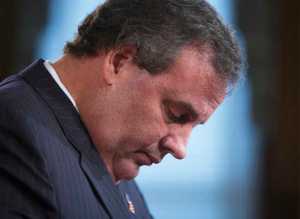NEW BRIDGE SCANDAL?
JUNE 23, 2014 for the N.Y. Times
Investigations into the Christie administration and the Port Authority of New York and New Jersey have zeroed in on possible securities law violations stemming from a $1.8 billion road repair agreement in 2011, according to people briefed on the matter.
While the inquiries were prompted by the apparently politically motivated lane closings at the George Washington Bridge last year, these investigations center on another crossing: the Pulaski Skyway, the crumbling elevated roadway connecting Newark and Jersey City. They are being conducted by the Manhattan district attorney and the Securities and Exchange Commission.
The inquiries into securities law violations focus on a period of 2010 and 2011 when Gov. Chris Christie’s administration pressed the Port Authority to pay for extensive repairs to the Skyway and related road projects, diverting money that was to be used on a new Hudson River rail tunnel that Mr. Christie canceled in October 2010.
Again and again, Port Authority lawyers warned against the move: The Pulaski Skyway, they noted, is owned and operated by the state, putting it outside the agency’s purview, according to dozens of memos and emails reviewed by investigators and obtained by The New York Times.
But the Christie administration relentlessly lobbied to use the money for the Skyway, with Mr. Christie announcing publicly that the state planned to rely on Port Authority funds even before an agreement was reached. Eventually, the authority justified the Skyway repairs by casting the bridge as an access road to the Lincoln Tunnel, even though they are not directly connected.
In bond documents describing the Skyway reconstruction and other repairs, the Port Authority has called the projects “Lincoln Tunnel Access Infrastructure Improvements.”
The accuracy of this characterization is now a major focus of the investigations, according to several people briefed on the matter. Under a New York State law known as the Martin Act, prosecutors can bring felony charges for intentionally deceiving bond holders, without having to prove any intent to defraud or even establish that any fraud occurred.
Two veteran prosecutors in the Manhattan district attorney’s office public corruption unit are working with two S.E.C. lawyers who are experts in such bond issues, one person briefed on the matter said, and another noted that while the agencies were each conducting separate parallel inquiries, they were working together.
In addition to criminal charges under the Martin Act, the investigations could result in civil action under the Martin Act or by the S.E.C., under federal securities laws.
The office of the Manhattan district attorney, Cyrus R. Vance Jr., and the S.E.C. declined to comment.
Categories: politics



Amazing issues here. I’m very glad to peer your article.
Thank you so much and I’m having a look ahead to touch you.
Will you please drop me a e-mail?
LikeLike
No matter if some one searches for his essential thing, so he/she desires to be available that in detail, thus
that thing is maintained over here.
LikeLike
I just couldn’t leave your website before suggesting that I actually enjoyed the standard info a
person supply for your guests? Is going to be again regularly
to check out new posts
LikeLike
What’s up i am kavin, its my first time to commenting anyplace, when i read this post i thought i could also create comment due to this good post.
LikeLike
Everyone loves what you guys are usually up too. Such clever work and coverage!
Keep up the superb works guys I’ve incorporated you guys to our blogroll.
LikeLike